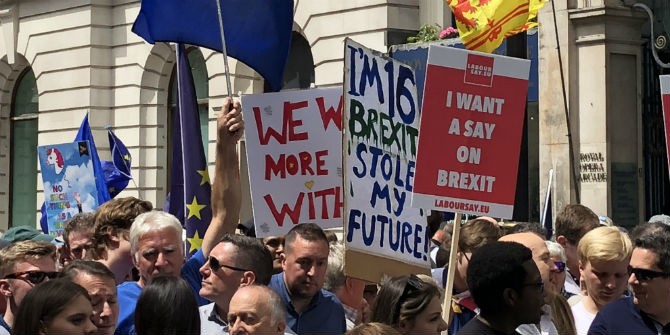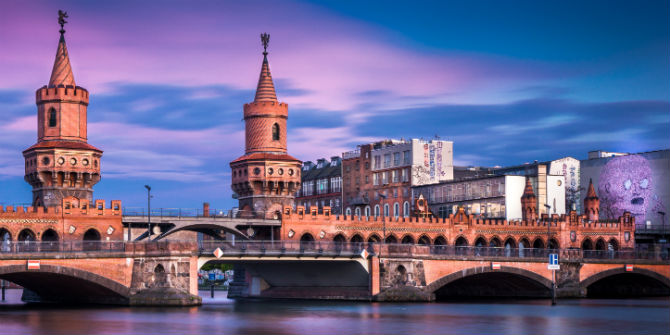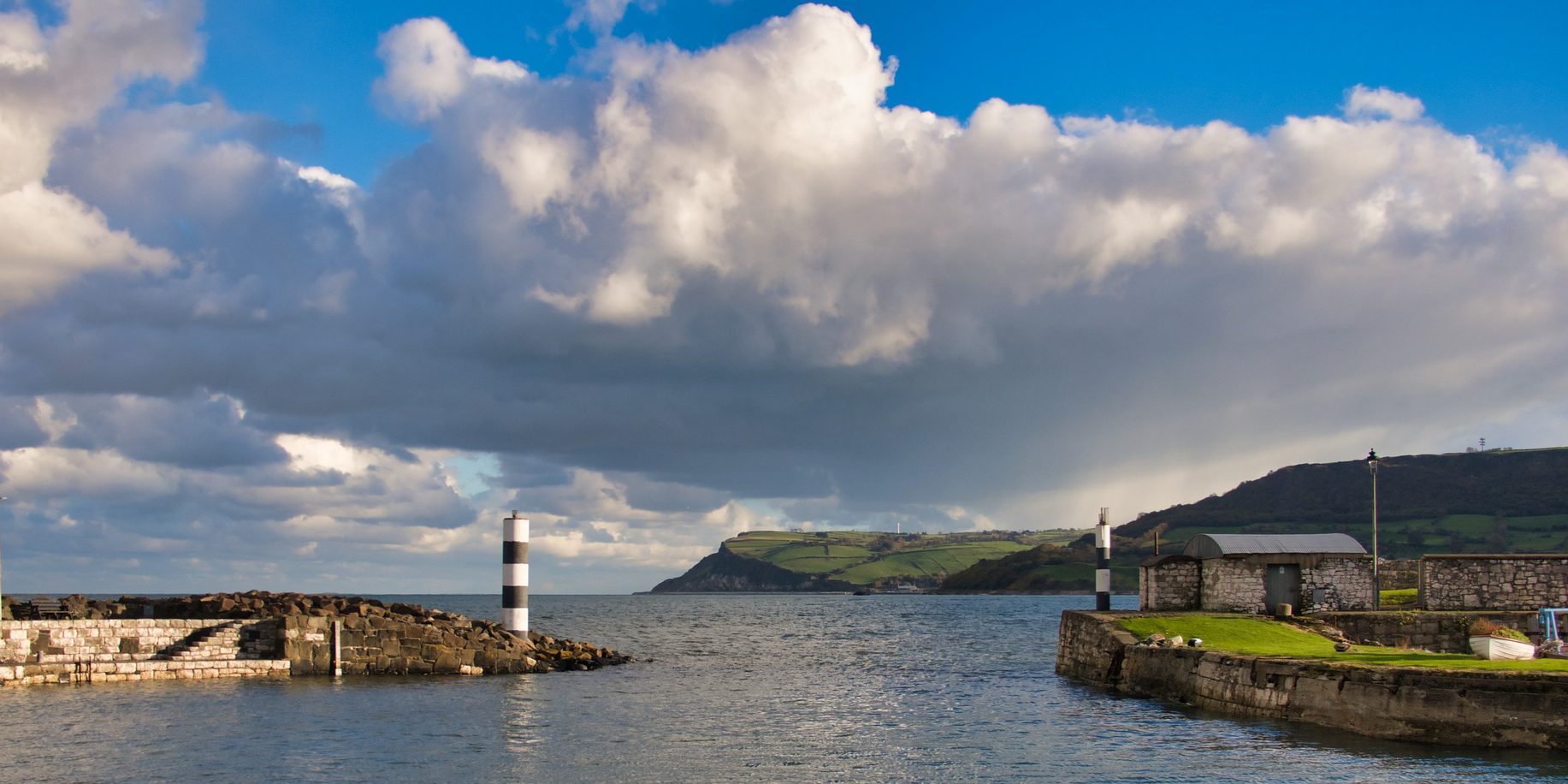 The outcome of most negotiations is a compromise in which all sides cede some ground. But Iain Begg (LSE) argues that ‘soft’ Brexit cannot offer an enduring compromise between ‘Brexiteers’ and ‘Remainers’ because both will be so uncomfortable with it.
The outcome of most negotiations is a compromise in which all sides cede some ground. But Iain Begg (LSE) argues that ‘soft’ Brexit cannot offer an enduring compromise between ‘Brexiteers’ and ‘Remainers’ because both will be so uncomfortable with it.
Split the difference. In most negotiations it is the three-word formula most likely to be adduced, obliging both sides to make some concessions in the interests of concluding an agreement. The allure of ‘soft’ Brexit is easy to understand because it respects the referendum result by taking the UK out of the EU, but ensures the economic costs and risks are kept to a minimum.
Those holding out for a more comprehensive break with the EU are then portrayed as playing with fire by creating obstacles to trade with our biggest market, putting jobs and growth in jeopardy. In his Mansion House speech, delivered on 21 June, Philip Hammond tried to play down the differences between his view of Brexit and those of some of his cabinet colleagues.

He told us the Treasury under his watch as Chancellor is not (his inverted commas) “the enemy of Brexit” as has apparently been briefed by other ministers—you can guess who. Instead, Hammond’s Treasury will be ‘the champion of prosperity for the British people outside the EU, but working and trading closely with it’.
Although the language is both emollient and positive about what life outside the EU can offer, phrase after phrase emphasises staying very close to the EU. Thus, Hammond wants ‘a new relationship with our European neighbours that protects those patterns of trade; those business relationships that have been painstakingly built over decades’. It will be one which ‘maintains low friction borders and open markets’ and, tickling the tummy of his audience in the City, ‘enables UK–EU financial services trade to continue’. In staccato sentences, he recalls an earlier speech on ‘a future financial services partnership’ with the EU:
- “Where we remain highly aligned and deeply interconnected”.
- “Even though we will be outside the EU”.
- “And explained why this is in the overwhelming interest of UK and EU businesses and citizens”.
Strip away the rhetoric and the message is clear: the UK’s fundamental economic interest lies in staying in the single market. The main advantages of staying close to the EU are limiting the short- to medium-term risks to the economy, as well as the prospect of a viable solution to the Irish border conundrum.
Whisper it, however: Boris Johnson, Jacob Rees-Mogg, and their acolytes may well be correct, at least on the politics of the choice. Soft Brexit translates into retaining much of what constitutes EU membership and would not be the decisive break implicit in the decision to leave the EU. Staying in either, or both of, the customs union or the single market would mean accepting EU regulations, the jurisdiction of the European Court of Justice, paying towards the EU budget and—probably—either very preferential treatment or complete free movement for EU workers. It would also limit or even preclude separate trade deals with other partners, rendering Liam Fox’s Department of International Trade redundant.
Although it has become routine to mock the more extreme predictions from the referendum campaign of the economic damage expected from the decision to leave, let alone actually exiting the EU, there can be little doubt the UK economy is looking vulnerable. The slowdown in economic growth has now stretched to five quarters since the end of 2016 and the gap between both Eurozone and G7 growth and that in the UK persists, as the chart below shows.
Figure 1: UK growth compared with the Eurozone and the G7

Although Hammond rightly emphasises the continuing strength of the labour market and initiatives to boost the UK’s lacklustre productivity, some of his other claims in the speech are Panglossian.
He tells us ‘investment spending grew at the fastest rate in the G7’, omitting to mention it is still the lowest as a proportion of GDP according to comparative data. There is indeed ‘a current budget in surplus’ – note the careful choice of adjective – but after all these years of supposed fiscal discipline, there is still a public deficit overall.
Major investors – and not just Airbus – are increasingly uneasy about the dither and drift in the UK approach to Brexit and looking elsewhere, and financial intermediaries are transferring a few dozen or hundreds of jobs from the City to other EU financial centres. This is not (yet) dramatic, but nor should such developments be dismissed out of hand. Not all the concerns are cries of ‘wolf’. The ardent Brexiteers’ tunnel-vision about the reality of economic risks and the unreality of easy trade deals with other parts of the world is increasingly being exposed as bogus.
Even our supposedly great pals, the Australians, have initiated talks with the EU about a free trade deal likely to have similar terms to the one the EU already has with Canada, and may see this as a greater priority than concluding one with the UK. Add in the further illusions about a Brexit dividend to be spent on the NHS, not to mention the government’s own rather coyly presented assessments of costs for most sectors of the economy, and it should be obvious to all but the most obtuse that Brexit will be economically damaging to the UK. The much maligned Arron Banks at least had the honesty to adjudge this to be ‘a price worth paying’.
Equally, supporters of soft Brexit have to realise a country on the outside will unavoidably be a rule-taker with scant opportunity to influence rule-setting. As Ivan Rogers, the former UK ambassador to the EU (until he left in despair at the government’s stance) has shown in forensic detail, there are three main rule-setters at international level: the EU, the US and China. The UK will, broadly, have to align itself with one of the three and would be on a fool’s mission if it sought to go it alone.
What, then, is to be done? The choice has been expressed as one between variants of hard and soft Brexit, starting from the premise that the ‘people have spoken’ in the referendum. If the result is considered politically untouchable, meaning Brexit has to be delivered (the logical interpretation of ‘Brexit means Brexit’), all the talk about meaningful votes or a second referendum becomes irrelevant.
In the end, splitting the difference will satisfy neither side and be at risk of unravelling. Hard Brexit will be costly, but if that is unpalatable, there is only one real alternative.
This post represents the views of the author and not those of the Brexit blog, nor the LSE. It first appeared on the UK in a Changing Europe blog.
Iain Begg is the Co-Director of the Dahrendorf Forum and a Professorial Research Fellow at the European Institute at LSE.







No reference to Efta and the EEA’s internal market, which involves no customs union – so a customs agreement would be needed, acceptance of about 25% of the EU’s regulation, the Efta court rather than the ECJ, and an emergency brake on freedom of movement. This could represent a sensible transition while the UK develops a trade policy which is something more than slogans and jingoism. Over 80% of the EEA acquis is in the form of regulation and standards determined by global or international bodies other than the EU. The old canard about being a rule taker rumbles on, but it simply doesn’t recognise how trade regulations and standards are made. https://www.adamsmith.org/stuck-in-the-middle-with-eu/
Nick Timothy (bless) set May’s ridiculous red lines for her, and it is these which prevent a sensible resolution. The notion that this must be a zero sum game is nonsense. The Norway plus option has always been there, and is still the best available exit. There is no compulsion on the UK to crash out without a deal, or to reject the single market and to embark on a brand new high seas adventure without so much as a paddle or plan. The US is shutting down markets by embracing protectionism and there are precisely no countries queuing up to agree new deals with us. The UK will be in the wilderness for years if we go down that route. That may be fine for the filthy rich, hedge fund gamblers, and disaster capitalists, but it will bring hard times for the rest of us.
So what precisely would be the point of the hard Brexit envisaged by Johnson, Rees-Mogg and other chancers? Who is protecting the common good and how can MPs comply with their duty to act in the best interests of the nation when they are contemplating triggering renewed conflict in Ireland, risking the future of the United Kingdom, and deliberately harming our economy to an avoidable extent? Time for a serious deliberation of what most supports the common good.
,
A very strange article. Not necessarily untrue, but economical with the truth. The above comment by Adrian Baskerville is brilliant, much better than the article itself and hits all the points.
Ideological purity has no place in the politics of brexit, the only demands that need to be met are the protection of the UK population and the country itself. The best way to do this is to abandon brexit. However, this is a very difficult proposition and it seems impossible to achieve.
The only two choices left then are a hard brexit, which is either no deal or a simple Free Trade Agreement. The only soft brexit possible is Efta/EEA. Hard brexit would be an economic and social catastrophe. It is actually an illegal use of government power. They have a duty of responsibility to the people of the UK and they would be ill advised to follow the path of hard brexit.
The only possible choice is EEA/Efta. None of the caveats used to rubbish this choice are correct. It is a poor substitute for EU membership, which was so aptly put by Norway’s Prime Minister on her recent visit, but it is the only path which does fulfil the referendum promise, but also does not spell disaster for the country. And woe betide any government that rejects it.
Well, I think the idea has always been that Britain will eventually join back into the EU. Britain is part of Europe and always will be, both geographically and culturally. So since the “soft-Brexit” is not going to be a permanent relationship it is not such a problem if it has some issues. The challenge will be to keep EU together and on the right track despite the sometimes antagonistic but always valuable British viewpoint and influence. We must think “what would Britain do” (or ask them them). But of course it will not be completely the same thing.